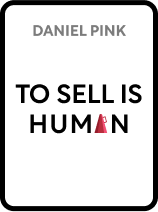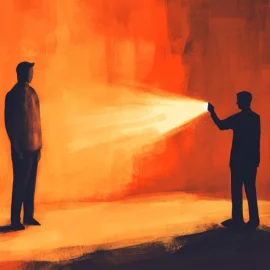

This article is an excerpt from the Shortform book guide to "To Sell Is Human" by Daniel H. Pink. Shortform has the world's best summaries and analyses of books you should be reading.
Like this article? Sign up for a free trial here .
In what ways do selling and service go hand in hand? What are Daniel Pink’s two rules to the service-oriented selling approach?
In his book To Sell Is Human, Daniel Pink explores the connection between selling and service. He says that the two things you must do are make the sale personal, and make it purposeful.
Keep reading to learn more about Pink’s service-oriented selling approach.
To Sell Is to Serve
All types of modern selling are about service. Being of service isn’t just being hospitable and friendly, it’s about identifying and fulfilling deeper needs in order to improve people’s lives. Beyond merely being an exchange of resources, a sale is a transaction meant to inspire change in people and organizations. This article will show you how to practice service-oriented selling. This type of selling is about moving others through persuasion, not to manipulate your own self-serving outcome, but to serve someone else. Pink explains that there are two rules to service-oriented selling.
Rule #1: Make It Personal
Often, salespeople try to be impersonal and “professional.” However, this creates distance rather than connection between you and your buyer. Instead, Pink recommends making the transaction personal by showing your passion for the product—you’re sold on it and want others to benefit from it too. You come across as focused on service rather than profit, making your pitch more credible. Making our professional worlds personal improves performance and increases the quality of the service being provided. If you want to facilitate meaningful transactions, remember that people are human, and make what you’re selling personal to you.
For example, if you’re selling cell phones, but you’re not really passionate about it, you’ll see potential buyers as a means to an end (profit). In contrast, if you really love selling phones, you’ll see potential buyers as people you can help. This will automatically improve your service, communicating that you care about meeting the buyer’s needs and aren’t just acting in your own self-interest.
| Why Service to the Customer Matters More Than Ever The COVID-19 pandemic forced many people into social isolation, fear, and distrust. Under those circumstances, being of service through home delivery and digital contact became more than just a sales strategy, it became a customer lifeline. Here are five reasons service matters: Service to the customer creates a sense of stability. In an uncertain world, reassurance and emotional support are increasingly important. Buyers are overwhelmed by constant unpredictability in their everyday lives, and if sellers can cultivate trust, this creates a feeling of security for buyers that can lead to long-term loyalty. Service to the customer supports human connection. With the rise of technology, the ways people connect have changed, pushing direct connection to the side in favor of digital connection. As meaningful connection gets more scarce, it’s more valuable when it does occur. So when a buyer connects with a customer, the customer feels invested in that relationship. Service to the customer provides high value. Social and political turmoil creates an equally tumultuous economic environment. Sellers who create buyer-centric experiences offer security and cultivate loyalty that stands the test of time. Service to the customer reduces stress for clients. In times of societal struggle, stress is amplified. The importance of making clients’ lives easier rather than harder is paramount. The more effortless a seller can make a transaction for a buyer, the more the buyer will trust and value them. Service to the customer creates meaningful experiences. In difficult times, people tend to cling to moments of goodness. Offering your buyers genuine empathy and consideration makes them more likely to associate you with feelings of relief and gratitude. |
Rule #2: Make It Purposeful
Pink advocates taking the new sales model a step further, by connecting what you’re selling to a broader purpose. Studies show the desire to serve is innate—you are most successful when you believe you are serving not just yourself or the buyer, but a larger purpose. He recommends thinking about how your service can improve society as a whole, and framing it that way to potential buyers.
For example, if you’re a teacher, remind yourself that you’re not only getting a paycheck, or improving the lives of the people you’re educating, but you’re also preparing those people to take what they learn and improve the world.
| The Service-Based Sales Model The service-based model is an increasingly popular approach to sales easily applied to any niche. According to life coach Linda Luke, the key aspects of service-based selling are as follows: Start: Begin with attentive listening and asking well-thought-out questions. Evaluate: Assess your client based on their needs. Recommend: Recommend to your buyer solutions that meet their needs. Value: Know the value of your service and be able to articulate that value to buyers. Interest: Assess how interested they are in what you have to offer.Commitment: Negotiate a transaction that meets both your needs. Extend: Go above and beyond to be of service and maintain communication beyond the initial transaction. Focus on these components to provide the most mutually beneficial transaction for all involved. |

———End of Preview———
Like what you just read? Read the rest of the world's best book summary and analysis of Daniel H. Pink's "To Sell Is Human" at Shortform .
Here's what you'll find in our full To Sell Is Human summary :
- Why we are all salespeople in the modern world
- The history, evolution, and significance of sales
- How you can effectively harness sales skills to create purpose, growth, or “movement” in your life






